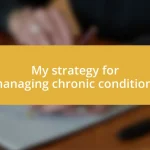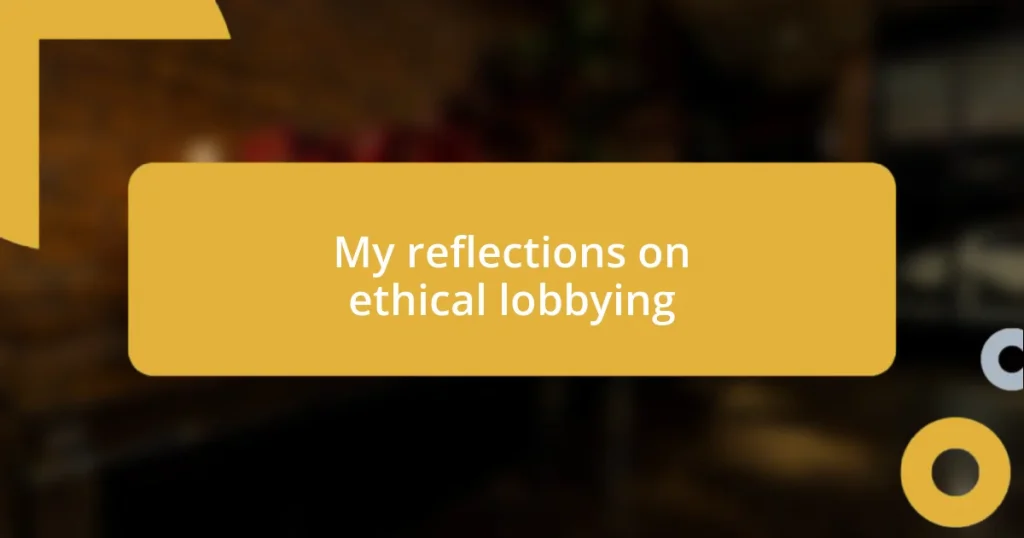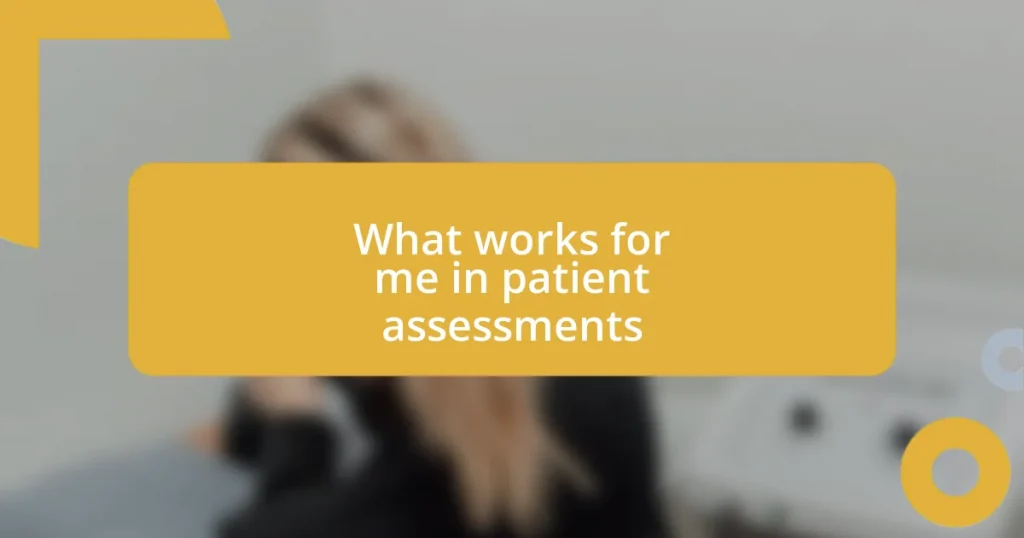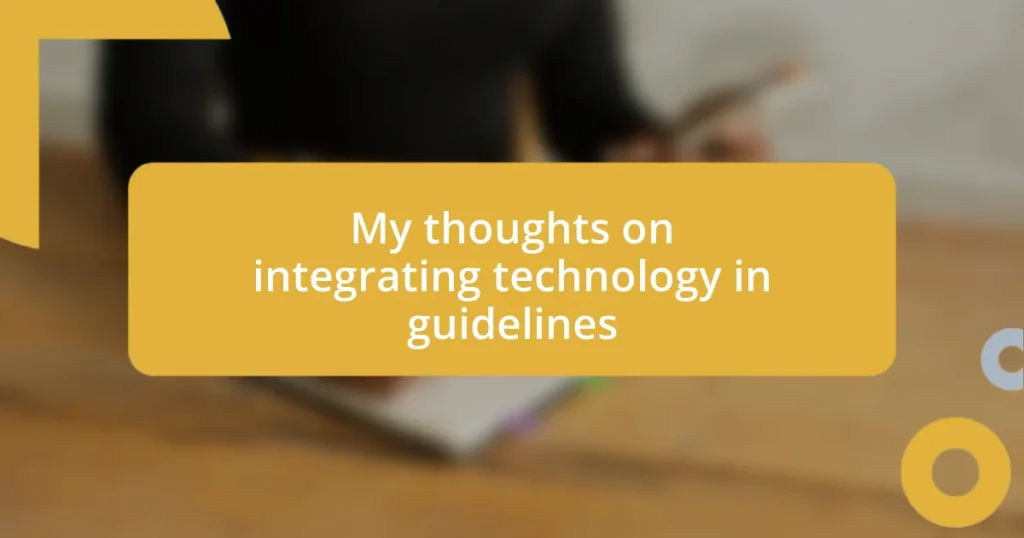Key takeaways:
- Transparency, fairness, and accountability are foundational principles of ethical lobbying, fostering trust and inclusivity within the community.
- Building strong relationships through open communication and aligning values enhances stakeholder support and drives effective advocacy.
- Navigating legal frameworks with ethical awareness allows advocates to represent constituents genuinely and push for transformative change in policy.

Understanding ethical lobbying principles
One of the key principles of ethical lobbying is transparency. I remember a time when I attended a city council meeting where lobbyists disclosed their interests upfront. It made such a difference in how the community perceived their motives. Isn’t it comforting to know that the people influencing policy are open about their agendas?
Another important thing to consider is fairness. I’ve seen situations where large corporations exert pressure to sway decisions in their favor, overshadowing smaller voices. Have you ever thought about how that imbalance can stifle innovation and diversity in ideas? Ethical lobbying aims to level the playing field, ensuring everyone has a fair chance to be heard.
Finally, accountability plays a critical role in ethical lobbying. There was an instance in my career when a group faced repercussions for inadequately representing their constituents. It dawned on me then how vital it is for lobbyists to not only advocate for interests but also to remain answerable for their actions. This dynamic ensures trust and integrity within the lobbying process.

Strategies for ethical lobbying practices
When it comes to implementing ethical lobbying practices, I believe that establishing strong relationships is crucial. I recall a time when I worked with a local nonprofit and actively engaged with legislators, building trust over months of regular interaction. This wasn’t a one-off meeting; it was an ongoing conversation that allowed our perspectives to be heard and respected, which ultimately benefited our cause. It really highlights how investing time in relationship-building can pay off in advocating for ethical standards.
Here are some strategies I consider essential for ethical lobbying:
- Transparency: Always disclose your interests and affiliations upfront to avoid misunderstandings.
- Inclusivity: Make a concerted effort to incorporate diverse viewpoints in your advocacy, ensuring that marginalized voices are also represented.
- Continuous Education: Stay informed about current legislation and ethical considerations to continuously improve your lobbying efforts.
- Collaboration: Work with other organizations or stakeholders to promote shared goals, which can amplify your message and enhance credibility.
- Feedback Mechanisms: Establish channels for constituents to provide feedback on lobbying efforts, ensuring accountability and responsiveness to their needs.
Engaging in these strategies not only drives more effective outcomes but fosters an environment where ethical standards flourish. It’s truly satisfying to witness how a collective effort can lead to meaningful change within the community.

Building trust with stakeholders
Building trust with stakeholders is essential for ethical lobbying. I once had a client who was wary of lobbyists due to past negative experiences. To rebuild that trust, I prioritized open communication, sharing not only our goals but also the challenges we faced. This approach transformed our relationship; we transitioned from skepticism to a collaborative partnership. It’s incredible how authentic dialogue can change perceptions and foster a sense of belonging.
I’ve also learned that demonstrating commitment to shared values can solidify trust with stakeholders. There was a project where I took the time to listen intimately to community concerns before proposing solutions. By aligning our strategies with their values, I noticed a profound shift. Stakeholders felt valued and heard, and in return, their support became a strong pillar in our advocacy efforts. Wouldn’t you agree that when people see their interests reflected, it nurtures a sense of collective purpose?
Lastly, consistency is key. During a long-term campaign, I made it a point to provide regular updates, even when there was nothing particularly new to share. This reliability helped reassure stakeholders of our dedication to transparency and responsibility. It’s fascinating how a simple act can profoundly impact relationships, creating a foundation of trust that can sustain lobbying efforts over time.
| Actions to Build Trust | Impacts |
|---|---|
| Open Communication | Reduces skepticism and fosters collaboration |
| Aligning Values | Enhances stakeholder support and commitment |
| Consistency in Updates | Establishes reliability and strengthens relationships |

Navigating legal frameworks of lobbying
Navigating the legal frameworks of lobbying can be quite intricate, and I’ve found it requires not just a solid understanding of the laws but also an acute awareness of the ethical implications. One time, while working on a project that involved local legislators, I was amazed at how strictly adhering to legal requirements helped demystify the process for everyone involved. It made me realize that having a clear grasp of campaign finance laws and disclosure regulations isn’t just for compliance; it’s key to maintaining integrity in the lobbying process.
For example, I once encountered a situation where a seemingly minor oversight in transparency led to pushback from the community. It highlighted to me just how crucial it is to understand not only the letter of the law but also its spirit. Were we genuinely representing the interests of our constituents, or were we more focused on bending the rules? This introspection pushed me to advocate for proactive communication about our lobbying practices, ensuring that every stakeholder knew our actions were in good faith.
Understanding these legal frameworks can also empower advocates to push for changes that benefit a broader community. After all, if we know where the boundaries lie, we can confidently navigate them to lobby for policies that truly matter. Doesn’t that make you think about how informed advocacy can lead to transformative change? In my experience, combining legal knowledge with a genuine desire to serve community interests can create a powerful synergy that drives ethical lobbying forward.

Personal reflections on ethical experiences
Looking back, I remember attending a community forum where lobbyists were often met with suspicion. That experience opened my eyes. I felt compelled to share our approach candidly, which not only eased tensions but allowed for genuine dialogue. That night, I realized that being ethical in lobbying often means being vulnerable. How often do we truly share our struggles alongside our successes?
There was a project where we collaborated with grassroots organizations, each team member coming with their own biases and opinions. I was surprised by how transformative those discussions were. Letting go of my preconceived notions and really listening to grassroots advocates helped me understand the deeper issues at hand. It was a reminder that integrity isn’t just about following rules, but about embracing differing perspectives. Isn’t it empowering to learn how shared experiences can shape our understanding of ethical lobbying?
One moment that sticks with me was presenting our lobbying efforts to a group of skeptical students. Their questions, filled with doubt and curiosity, challenged me to reflect deeply on our practices. I could see in their eyes how powerful information can be. I admitted that while we strive for ethics, there’s always room for improvement. This admission seemed to resonate with them, paving the way for richer conversations about how we can all participate in ethical advocacy. Have you ever found that vulnerability can lead to deeper connections?















